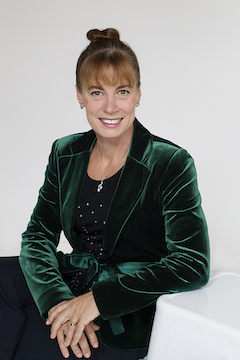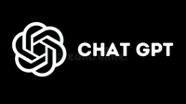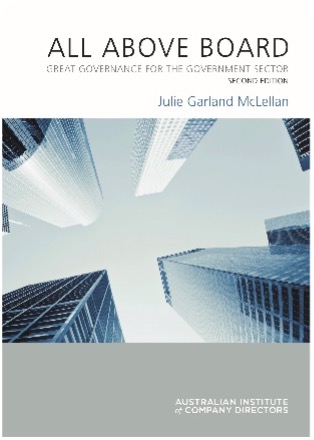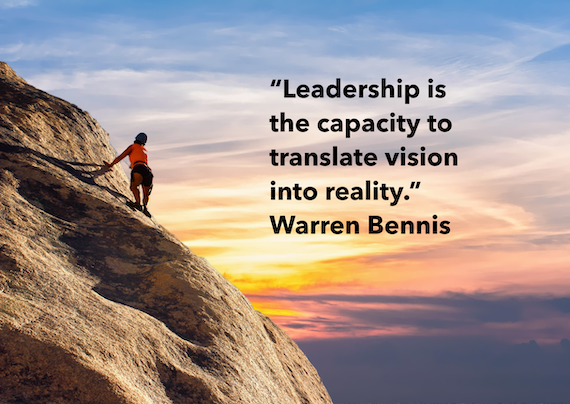|
|
|
|
|
|
|
|
|
Dear reader,
Welcome to the October issue of The Director's Dilemma newsletter. Every month this newsletter looks at a real-life board scenario and considers a range of responses.
This month we think about what to do when our own ability to chair is falling short of our desired performance.
To read this email in a web browser, go to www.mclellan.com.au/newsletter.html and click on 'read the latest issue'.
I hope you will enjoy the latest dilemma.
The Dilemma
Ryan joined the board of a small not-for-profit several years ago because he was passionate about the cause and wanted to work to make a difference. He became very frustrated with the board's culture; people reacting negatively when they don't get their way in meetings, either getting angry, upset or silently withdrawn. On many occasions the Chair avoided sensitive topics or allowed the board to talk around in circles without ever reaching a decision.
Two years ago, the Chair retired and moved interstate. Ryan quickly put himself forward as the replacement and was thrilled when the board unanimously endorsed him. (Nobody else came forward)
Now, he is worried because, if anything, his best efforts seem to have made the behaviour worse and people are fighting, complaining, threatening to resign, or just silently watching the rest of the board rather than contributing. It seems to deteriorate more with every meeting. Individually, each director is a lovely person; collectively they are a nightmare.
Before resigning himself, Ryan has come to you for advice about what he can do to help get this board back on track. What do you recommend?
|
|
|
|
Mary Sue's Answer

Being the Chairperson of a small nonprofit (NFP) board can be challenging. While board members volunteer their time out of passion for the cause, differing opinions on how to improve the organization's impact often arise. My suggestions to Ryan for getting the board back on track are:
-
Conduct one-on-one meetings: Ryan should meet individually with each board member to understand their motivations for being on the board, their views on what has led to the declining board culture, and their personal ideas for improvement. He will likely receive diverse perspectives, and as chair, he will need to decide which suggestions are actionable and which are not feasible. It's important that Ryan consolidates these insights, ensuring they remain anonymous, and then presents a summary of the key themes and proposed actions to the entire board. From there, the goal should be to create a collective "contract" or agreement among board members, outlining shared expectations and a commitment to a high-functioning, mission-focused board.
-
Consider external support: If Ryan is uncomfortable facilitating this process, another option is to seek out a board evaluation or governance consultancy willing to offer services pro bono or at a minimal cost. An external assessment could provide an unbiased perspective and help guide the board in improving its governance and culture.
Mary Sue Rogers is a global executive and non-executive director. Her directorships include East West Seed, Save the Children Australia, Women on Boards, and AIIR. She is based in Sydney, NSW, Australia.
|
|
|
|
Julie's Answer

Ryan needs to change this culture. Culture change will not happen unless he ups the ante, or he changes the composition of the board. Ryan needs to work out "Is this company in danger because of the legacies of a poorly performing board, or does he have time to work with the directors to improve the board's culture?"
If the company is in imminent danger of failing its mission or becoming insolvent, irrelevant, or just unworthy of his continued attention, then he has nothing to lose by calling the board firmly to order and telling directors that he, like the former chair, will leave if behaviours don't improve. He should ask them to commit to good board behaviours or leave the board and take their behaviours elsewhere. If they don't take either of those alternatives, he should leave. There are other boards where he can make an impact.
If Ryan has time, he can start by asking a couple of directors to draft a code of board conduct and some protocols for meetings, reading of papers, and review of minutes. It is important this comes from them, not him.
Then the board should have a strategy retreat with an external facilitator to review the current strategy, commit to working as a team to implement it, and adapt then adopt the board code of conduct and protocols.
Training in effective directorship and communication skills would also help. It would be a very worthwhile investment.
Julie Garland McLellan is a professional company director with experience on 25 boards. She is also one of Australia's leading board consultants offering training, mentoring, and evaluations for boards and directors. She is based in Sydney, Australia and travels worldwide.
|
|
|
|
Ricardo's Answer

The success of any board rests on two key factors: its composition and its functionality. It is clear that a lack of trust among the board members is at the core of the dysfunction. The first step, therefore, is to rebuild personal trust. Without this foundation, meetings will remain unproductive.
The approach involves addressing both individual concerns and collective actions. This is where specialized behavioral and cultural consultants come into play.
Recommended Steps:
-
Start by engaging a consultant with expertise in team dynamics and trust-building. Communicate clearly to the board the purpose and goals of this consultancy.
-
The consultant should hold private, in-depth conversations with each board member. The aim is to carefully listen to their thoughts on the current situation, what bothers them, and what changes they believe are needed to improve board effectiveness.
-
Following the individual meetings, the feedback should be analyzed to distinguish between general and individual problems.
-
With this information, an off-site retreat should be organized. Ideally, this would include an overnight stay with dinner, as shared meals and relaxed evening conversations can significantly enhance team bonding.
Key Components of the Off-site Sessions:
-
Summary of Findings: Begin by summarizing the insights from the individual conversations.
-
Personal Reflection Exercise: Activities such as a "life-line" exercise, where each member shares key personal milestones humanize relationships and build empathy.
-
Team Problem-solving: Participants should work on common issues identified during the interviews or by Ryan. Focus on defining the problem, proposing solutions, and assigning responsibilities with clear next steps.
-
Group Presentations: Share conclusions with the group. The consultant documents the problems, proposed solutions, responsible parties, and deadlines.
-
Education Sessions: Presentations on relevant topics, such as industry trends, AI, or neuroscience, can equip board members with tools to enhance their performance.
The sessions should ideally span two days (one afternoon and the following morning, or extended with an additional half-day). The evening downtime is crucial for building rapport, especially over dinner.
Ricardo Bäcker is Founding Partner & Chairman of Bäcker & Partners / AltoPartners Argentina. In addition, through Vistage, he provides personalized advisory to a group of Chairs, CEOs and Human Resources Directors, which gives him a unique view of the market. He is based in Buenos Aires, Argentina.
|
|
|
|
Chat GPT's Answer

Ryan, here are some practical steps to help you regain control of the board and foster a more constructive culture:
-
Acknowledge the Problem: Begin by openly addressing the issue with the board. Use a meeting or retreat to express your concerns about the lack of cohesion and how it's impacting decision-making. Encourage directors to share their frustrations in a safe, structured way.
-
Reset Expectations: Establish clear behavioural expectations for meetings. This could include a code of conduct or a board charter, outlining how disagreements should be handled and the importance of respectful, collaborative dialogue. Reinforce that everyone is there for the same cause.
-
Facilitation Training: If you haven't had training in facilitation, now's the time. Strong facilitation skills will allow you to guide discussions constructively, ensuring everyone has a voice and that sensitive topics are addressed head-on.
-
Engage a Neutral Facilitator: Consider bringing in an external facilitator or governance expert to lead a workshop on communication, decision-making, and team dynamics. Sometimes, an outside perspective helps break negative patterns.
-
Individual Conversations: Meet one-on-one with each board member to understand their concerns, motivations, and frustrations. This will help you tailor your approach and identify any underlying issues.
-
Board Development: Suggest professional development for the board, including training on effective governance, conflict resolution, and strategic decision-making.
Implementing these steps can shift the board dynamic and create a more functional, positive working environment.
Chat GPT is an artificial intelligence (or a pattern recognition, data analysis, and prediction engine). It resides in Cyberspace.
|
|
|
|
Experience Julie in Real Life - list of upcoming opportunities
On Thursday 17th October from 5:00pm to 8:00pm at Work Club Global, Level 32, 200 George St Sydney, I will be presenting 'Governance Unplugged' - a free event sponsored by BoardPro.
Here is the link to book your place:
https://events.humanitix.com/governance-unplugged-sydney
If you would prefer confidential advice or an in-house workshop for your executive team, please reply to this email and I will gladly provide.
Can't manage a course at this time but still want some input? Try my YouTube channel.
Book review : All Above Board; great governance for the government sector by Julie Garland McLellan

This book is a comprehensive guide focused on corporate governance specifically within government-owned organisations. It covers various aspects of governance and how directors can effectively manage these organizations while balancing public policy, financial objectives, and social responsibilities.
The book includes practical case studies, such as the management of the New South Wales Grain Board and the challenges of providing services in monopoly situations (e.g., electricity supply), demonstrating how directors can navigate complex governance issues.
This book is tailored for both aspiring and current directors of government-sector boards, helping them to understand the specific challenges of the public sector and offering insights into effective governance practices.
Available from https://www.aicd.com.au
Board reviews - Every board - just like every other team - needs to measure its performance if it hopes to improve. When your board next needs to conduct a performance evaluation or a governance review, please remember that I would be delighted to help. You can contact me at julie@mclellan.com.au.
Inspirational quote for October

This newsletter - If you have any ideas for improving the newsletter please let me know. If you are reading a forwarded copy please visit my website and sign up for your own subscription.
Suggestions for dilemmas - Thank you to all the readers who have suggested dilemmas. They are greatly appreciated. I will answer them all eventually. I could not write this newsletter without your help and without the generous help of all the experts who respond each month to the case studies.
Be a contributor - If you would like to attempt a response to the dilemmas for publication you will be most welcome. Simply reply to this email and let me know. I am always on the lookout for new talent from around the world so please reach out if that sounds like something you could do. I am also always grateful for the generous sharing of the current and past contributors. I couldn't create such an engaging newsletter without their help.
Spread the word - If you have read this far, I assume you enjoy the newsletter - please help me to reach more directors by sharing the newsletter with your board colleagues and suggesting that they also become subscribers or by posting a recommendation on my LinkedIn page to let others know that you find the newsletter valuable.
Let's connect - I use LinkedIn to share information about boards and directorship with my friends and acquaintances. If you use LinkedIn and we are not yet connected I will welcome a connection from you. You can find me at linkedin.com/in/juliegarlandmclellan.
Farewell until the next issue due 1 November 2024. I look forward to greeting you again then.
Enjoy governing your companies, it is a privilege!
Best regards,
Julie

Quote Illustration by Julie Garland McLellan
Disclaimer - The opinions expressed above are general in nature and are designed to help you to develop your judgement as a director. They are not a definitive legal ruling and do not constitute legal advice. Names and some circumstances in the case study have been changed to ensure anonymity. Contributors to this newsletter comment in the context of their own jurisdiction; readers should check their local laws and regulations as they may be very different.
Privacy - I am privileged to have your contact details and keep them as safely as possible. I will alert you if they are ever accessed by any unauthorised person (the technical staff at ayuda help with publishing and issuing the Director's Dilemma and have access so they can send the newsletters to you). I do not sell your details to anyone; they are kept only for the intended purpose - sending you this newsletter and helping to build the judgement of company directors by providing a safe way to consider potential responses to real life events.
|
|
|
|
|
|
|







